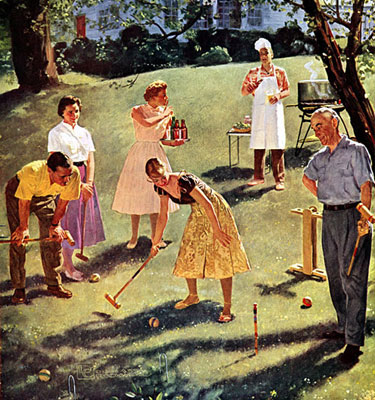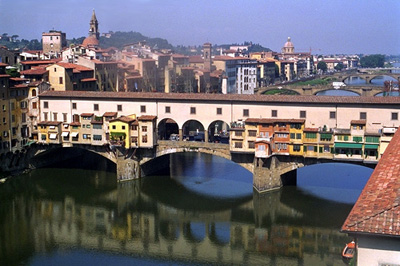 From the time I was in nursery school until I graduated from high school, I never spent a summer in my home state of Michigan. Most summers we went to Maine, but for three summers, we headed not to the rocky, Atlantic coast, but across that ocean to Europe. The middle summer when I was fifteen, we explored England, Italy and France deeply and passionately. My mother, possibly the best trip planner ever to draw breath, spent nearly a year before the trip selecting the perfect bed & breakfasts, auberges and pensiones for us.
From the time I was in nursery school until I graduated from high school, I never spent a summer in my home state of Michigan. Most summers we went to Maine, but for three summers, we headed not to the rocky, Atlantic coast, but across that ocean to Europe. The middle summer when I was fifteen, we explored England, Italy and France deeply and passionately. My mother, possibly the best trip planner ever to draw breath, spent nearly a year before the trip selecting the perfect bed & breakfasts, auberges and pensiones for us.
The things we wanted to see were an odd mixture of The Things One Sees in Europe (The Coliseum, The Louvre) and things my father wanted to see (the famous “Black Madonna” of Urbino). A consummate networker long before the days of the internet, my mother communicated her charm and enthusiasm via weightless, pale blue aerogrammes that appeared in the mailbox all year, one memorably addressed to “La Famiglia Graham;” by the time we boarded the plane for Frankfort in June, deposits were made, and an assortment of feather beds, duvets and hand-embroidered pillow cases awaited our travel weary bodies.
We fell hard for Florence, so hard that my mother cancelled our reservations in Venice and booked an extra week. Our “insider” guide was a colleague of my father’s, an Italian professor named Bob (and a “real” Italian), the leader of a group of Michigan State University students studying in Florence for the summer session. Bob had rented a villa at the top of an impossibly steep hill lined with Cypress trees to which we ascended one afternoon for bread, cheese, olives, and a plate of salami, soppressata, and prosciutto.

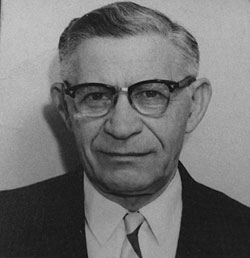 I associate mail order food with my father. When I was growing up, he
and I had very few connections. He took me to only one professional
football game. He never came to Back-to-School Night and had no
interest in any of my hobbies. I remember him as dour, not very
talkative and disapproving. I was part of his second family and he
was, I’m certain, just a bit too old to have a young kid running
around.
I associate mail order food with my father. When I was growing up, he
and I had very few connections. He took me to only one professional
football game. He never came to Back-to-School Night and had no
interest in any of my hobbies. I remember him as dour, not very
talkative and disapproving. I was part of his second family and he
was, I’m certain, just a bit too old to have a young kid running
around.
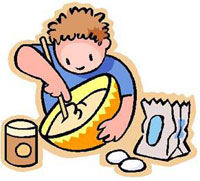 When I was a kid, I was pretty much a geek. At nine I started to
stutter so badly that the school put me into a class for “special”
students and my parents sent me to a psychologist. The approach
favored by the psychologist was to withhold talking until I said
something. Since I didn’t want to stutter and didn’t want to talk to
him anyway, we mostly spent 50 minutes in silence.
When I was a kid, I was pretty much a geek. At nine I started to
stutter so badly that the school put me into a class for “special”
students and my parents sent me to a psychologist. The approach
favored by the psychologist was to withhold talking until I said
something. Since I didn’t want to stutter and didn’t want to talk to
him anyway, we mostly spent 50 minutes in silence.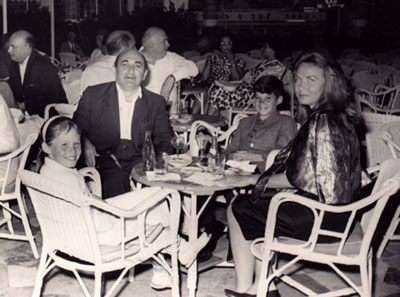 There is an edible experience I had as a child that remains unsurpassed. The year was 1963, I was ten. I still think about it and have tried many times to recreate it. I need to ask my brother if he remembers the moment as vividly as I do.
There is an edible experience I had as a child that remains unsurpassed. The year was 1963, I was ten. I still think about it and have tried many times to recreate it. I need to ask my brother if he remembers the moment as vividly as I do.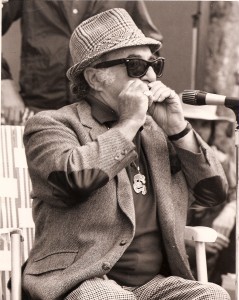 Some days are just harder than others.
Some days are just harder than others.